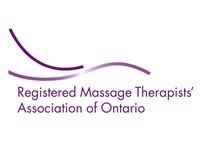Complaint Reviews at the Health Professions Appeal and Review Board (HPARB): The Essential Information
BlogImage
By Lad Kucis, Partner, Gardiner Roberts LLP
As lawyers acting for all types of regulated health professionals (i.e. pharmacists, dentists, chiropractors, etc.) we are regularly asked questions about complaint reviews before the Health Professions Appeal and Review Board (“HPARB”).
These types of inquiries have become more common in the past few years, as regulated health professionals are increasingly commencing HPARB complaint reviews seeking to set aside decisions of the Inquiries, Complaints and Reports Committee (“ICRC”). This is happening because recent legislative changes require certain ICRC findings, such as cautions and specified continuing education and remediation programs (“SCERPs”) to be posted on the public register on indefinite basis.1
This article will set out the essential information that every regulated health professional needs to know about HPARB complaint reviews.
What is HPARB?
HPARB is an independent adjudicative agency that is independent of both the health professions colleges and government.
HPARB obtains it authority from the Regulated Health Professions Act, 1991 (“RHPA”) and the Veterinarians Act. One of its key tasks is to review complaint decisions made by the ICRCs of health professions colleges.
Who Can Request a Complaint Review?
Either the complainant or the regulated health professional who was the subject of the original complaint before the ICRC may request a complaint review before HPARB. The party who requests the complaint review is known as the applicant, whereas the other party is known as the respondent.
It is also important to note that both parties may request a complaint review. In such cases, both complaint reviews are heard at the same time and the latter complaint review is referred to as the cross-review.
In the past, the vast majority of complaint reviews were requested by complainants. As discussed above, however, in recent years, complaint reviews are also increasingly being requested by regulated health professionals.
How do you Request a Complaint Review?
Requests for a complaint review are to be made to HPARB and are to be submitted in writing.
How Long Do Parties Have to Request a Complaint Review?
A request for a complaint review must be made within 30 days of the receipt of the decision of the ICRC and the notice advising of the right to request a complaint review.2
This 30 day period can be extended by an additional 60 days, provided that HPARB is satisfied that no person will be unduly prejudiced.3 Notwithstanding, regulated health professionals interested in requesting a complaint review would be well advised to submit their request within the initial 30 day period.
What Happens to the Information Posted on the Public Register Flowing from an ICRC Decision if a Complaint Review has been Requested?
If a complaint review is requested, the information posted on the public register will remain posted. However, a notation is typically added indicating that the matter is being reviewed by HPARB.
Do the Parties Receive any Documentary Disclosure Prior to a Complaint Review?
Both parties are provided with a Record of Investigation, which typically contains all of the information that was considered by the ICRC. If any information is withheld, HPARB will advise the parties.
Are there any Steps Before the Complaint Review?
Prior to the complaint review, the parties (or their representatives) are required to participate in a case conference with a facilitator appointed by HPARB. Case conferences, which are typically conducted via conference call, are an opportunity to clarify the issues; outline the mandate and powers of HPARB; discuss any procedural steps or motions; and to schedule a date for the complaint review.
The potential settlement of any or all of the issues is also discussed during a case conference.
Can the Applicant Withdraw a Complaint Review
The applicant may request a withdrawal of a complaint review by making such a request to HPARB. A complaint review will only be withdrawn, however, if the respondent provides their consent.
Are Complaint Reviews Conducted In-Person or In Writing?
As determined by HPARB, complaint reviews may be conducted in-person, in writing, electronically (i.e. conference call, videoconference, etc.) or any combination of these formats. Most complaint reviews are conducted in-person.
Are Complaint Reviews Open to the Public?
HPARB is required to hold complaint reviews in public, unless there are exceptional reasons not to do so.4
Do the Parties Require Legal Counsel?
No. However, in most cases, regulated health professionals are represented by legal counsel.
Complainants are typically self-represented, although they are on occasion represented by legal counsel or another representative.
Are the Parties Required to Attend a Complaint Review?
The parties are expected to attend at a complaint review or have legal counsel or another representative attend on their behalf. If a party would like to attend via conference call or videoconference, they must advise HPARB in advance.
If a party (or their representative) does not attend, the complaint review may proceed in their absence.
Does the Health Professions College Participate in a Complaint Review?
Although the health professions college is not a party to the complaint review, they frequently send a representative to answer any questions that HPARB may have. This representative is typically the investigator who handled the complaint.
HPARB also has the power to require the health professions college to send a representative.5
What is the Scope of Review in a Complaint Review?
In conducting a complaint review, HPARB is required to assesses the reasonableness of the ICRC’s decision and the adequacy of the investigation conducted.6 It is beyond the mandate of HPARB to engage in any other inquiries.
In reviewing the reasonableness of the ICRC’s decision, the question for HPARB is not whether it would arrive at the same decision as the ICRC, but whether the ICRC’s decision can reasonably be supported by the information before it and can withstand a somewhat probing examination. In doing so, HPARB considers whether the decision falls within a range of possible acceptable outcomes that are defensible in respect of the facts and the law.
In considering the adequacy of the investigation, HPARB is required to assess whether the ICRC sought to obtain the essential information relevant to making an informed decision regarding the issues raised in the complaint. An adequate investigation does not need to be exhaustive.
What is the Process at a Complaint Review?
During a complaint review, the applicant (or their legal counsel or other representative) will provide submissions to the HPARB Panel (which is usually 3 members) as to why they believe the decision of the ICRC was not reasonable and/or the investigation was inadequate.
The respondent (or their legal counsel or other representative) will then have an opportunity to provide submissions to the HPARB Panel on these same issues.
Thereafter, the applicant will have an opportunity to provide a reply in respect of the submissions made by the respondent.
The HPARB Panel may ask questions of the applicant, respondent or the representative of the health professions college (if present) at any point during the complaint review.
Are There Any Witnesses at a Complaint Review?
There are no witnesses at a complaint review. In addition, the parties cannot question one another or the representative of the health professions college.
What are the Powers of HPARB?
After hearing a complaint review, HPARB may do one or more of the following:
- confirm all or part of the ICRC’s decision;
- make recommendations to the ICRC;
- require the ICRC to exercise any of its powers other than to request a Registrar’s investigation.7
HPARB cannot, however, order the ICRC to do things that are outside of its jurisdiction, such as make findings of professional misconduct or incompetence.
How does HPARB Notify the Parties of its Decision?
HPARB notifies the parties of its decision in writing, by providing a Decision and Reasons.
Are Complaint Review Decisions Published?
The Decision and Reasons of HPARB are published on a legal database called canlii.org. In an effort to maintain confidentiality, only the initials of the parties are used.
Nevertheless, in many instances, the facts of the case, including the name of the health facility involved, makes it is relatively easy to identify the regulated health professional involved.
Conclusion
Given the stakes involved, regulated health professionals should strongly consider requesting an HPARB complaint review if the ICRC has made a decision that has resulted in information about them being posted on the public register.
If a regulated health professional becomes involved in an HPARB complaint review, it is imperative that they take the matter very seriously and would be well advised to retain experienced legal counsel to represent them.
About the Author
 Lad Kucis is certified by the Law Society of Ontario as a specialist in health law. As part of his practice, he provides advice and representation to massage therapists and other regulated health professionals regarding the full spectrum of college matters, including complaints, investigations, discipline and appeals/reviews.
Lad Kucis is certified by the Law Society of Ontario as a specialist in health law. As part of his practice, he provides advice and representation to massage therapists and other regulated health professionals regarding the full spectrum of college matters, including complaints, investigations, discipline and appeals/reviews.
He can be reached by telephone at 416-864-3114 or, by email at lkucis@grllp.com.
This article has been prepared for information purposes only and is not intended to be construed as legal advice.
References
- see s.23(1) of the Health Professions Procedural Code (the "code") of the RHPA.
- see s.29(3) of the Code.
- see s.28.1 and s.29(4) of the Code.
- see s.34(1) (item 2) and s.45 of the Code
- see s.33(2)(b) of the Code.
- see s.33(1) of the Code.
- see s. 35(1) of the Code.


